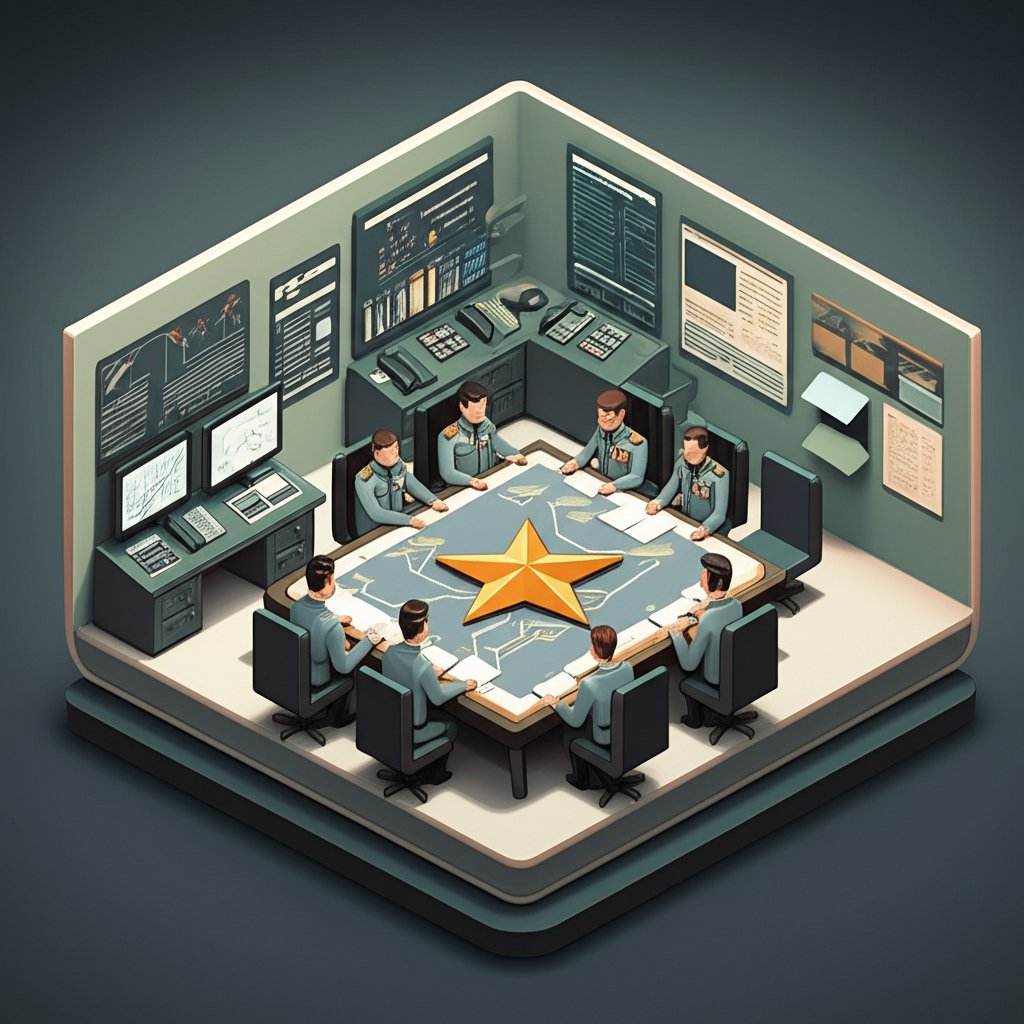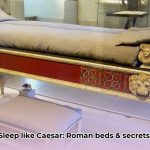History is a grand tapestry woven with tales of conquest, defense, and unparalleled leadership. At the heart of these epic narratives stand military commanders – figures whose strategic genius, unwavering resolve, and profound understanding of human nature not only shaped empires but also forged timeless leadership secrets that resonate across millennia. From ancient battlefields to modern command centers, these historical commanders offer an invaluable masterclass in the art and science of guiding others through uncertainty, inspiring commitment, and achieving extraordinary goals.
This article delves into the lives and campaigns of some of history’s most iconic military leaders, dissecting the leadership principles that propelled them to victory and cemented their legacies. We’ll explore how their approaches to military leadership provide enduring lessons in leadership applicable far beyond the battlefield, offering insights into strategic thinking, team motivation, resilience, and ethical decision-making that can empower leaders in any field. Prepare to uncover the universal truths of command that continue to define greatness.
The Indelible Mark of Legendary Military Commanders
To truly appreciate their impact, one must study not only their leadership styles but also the specific engagements that defined their careers, such as those detailed in our exploration of iconic military leaders and their landmark battles.
The annals of history are replete with individuals who, through sheer force of will, tactical brilliance, or moral authority, rose to command armies and alter the course of nations. These aren’t merely warriors; they are architects of fate, whose decisions impacted millions and whose stories continue to teach us about human potential and the dynamics of power.
Defining Excellence in Historical Commanders
What sets a “legendary” commander apart? It’s more than just winning battles. It’s about a combination of vision, character, and an uncanny ability to connect with and motivate their troops. Historical commanders are distinguished by:
- Strategic Foresight: The ability to see beyond the immediate engagement and plan for long-term objectives, anticipating challenges and opportunities.
- Tactical Prowess: A deep understanding of combat mechanics, terrain, logistics, and how to effectively deploy resources to gain an advantage.
- Inspirational Presence: The capacity to instill courage, loyalty, and unwavering dedication in their soldiers, often under extreme duress.
- Adaptability: The flexibility to pivot strategies in the face of unforeseen circumstances or new intelligence.
- Ethical Foundation: While not universally true, many of the most revered commanders adhered to a strong moral code, earning respect even from their adversaries.
These traits form the bedrock of effective command, distinguishing capable leaders from truly great ones.
The Enduring Relevance of Military Leadership
The high-stakes environment of warfare distills leadership to its purest form. In the military, leadership failures can mean catastrophic losses, making the lessons gleaned from this domain universally powerful. Military leadership demands clarity under pressure, the ability to make rapid, informed decisions with imperfect information, and the fortitude to inspire confidence when all seems lost.
The principles refined in military settings – such as clear communication, leading by example, fostering camaraderie, strategic planning, and crisis management – are directly transferable to orchestrating a business, leading a project team, or navigating personal challenges. Understanding these dynamics provides a powerful framework for leadership in any arena.
Unpacking Core Leadership Principles from Battlefield Brilliance
At the heart of every great commander’s success lie fundamental leadership principles that transcend time and context. These are not merely suggestions but foundational truths for effective command.
Strategic Vision and Decisive Action
Great commanders possess an almost prophetic ability to envision the end-state and craft a path to achieve it. This involves:
- Long-Term Planning: Setting ambitious, yet achievable, goals and developing comprehensive strategies to reach them, often over years or decades. Alexander the Great’s vision of a Hellenic empire stretching to India is a prime example.
- Analysis and Information Synthesis: The capacity to gather vast amounts of information, analyze it rapidly, identify critical factors, and make well-informed decisions.
- Decisiveness: The courage to make tough calls swiftly and stand by them, understanding that inaction can be more detrimental than a flawed decision. Julius Caesar was renowned for his rapid decision-making in battle, often turning the tide at critical moments.
Inspiring Loyalty and Cultivating Trust
No army wins solely on orders; it wins on belief. Military leadership understands that success hinges on the unwavering loyalty and trust between commander and led.
- Leading by Example: Commanders who share the risks, endure the same hardships, and personally demonstrate the virtues they demand from their troops inspire profound respect. George Washington’s presence during the harsh winter at Valley Forge cemented his troops’ loyalty.
- Clear Communication: Articulating goals, strategies, and expectations clearly and consistently ensures everyone understands their role and the mission’s purpose. Effective communication fosters a shared sense of purpose.
- Fairness and Justice: Treating soldiers equitably, recognizing merit, and addressing grievances justly builds a strong foundation of trust. Even the “Desert Fox” Erwin Rommel was respected for his fair treatment of prisoners and his soldiers.
Adaptability, Resilience, and Risk-Taking
The battlefield is a dynamic, unpredictable environment. Commanders must be prepared to adapt, persevere through setbacks, and take calculated risks.
- Flexibility in Strategy: While a vision is crucial, rigid adherence to a plan when circumstances change is folly. Commanders must be able to adjust tactics, change objectives, or even retreat when necessary. Hannibal Barca’s ability to sustain his campaign in Italy for over 15 years against a superior foe highlights remarkable adaptability.
- Mental Fortitude: Displaying unwavering resolve in the face of adversity, preventing panic, and maintaining morale even after significant losses.
- Calculated Risk Assessment: Understanding when and how to take a risk that could yield a decisive advantage, rather than simply gambling. This requires a deep understanding of probabilities and potential consequences.
Integrity, Empathy, and Soldier Welfare
Beyond tactics and strategy, the most respected military commanders often demonstrated high moral character and a genuine concern for their troops.
- Integrity: Adhering to a strong moral code, maintaining honesty and transparency, and acting with honor. This builds a reputation that inspires respect both within and outside their ranks.
- Compassion and Care: Prioritizing the well-being, training, and logistical needs of their soldiers. A commander who demonstrates care for their troops’ lives and welfare earns their devotion.
- Accountability: Taking responsibility for both successes and failures, rather than blaming subordinates. This fosters a culture of ownership and learning.
Case Studies: Historical Commanders and Their Enduring Lessons
Let’s examine specific historical commanders to see these leadership principles in action, drawing tangible lessons in leadership.
Alexander the Great: Visionary Conquest and Charismatic Command
Alexander’s meteoric rise and conquest of much of the known world are testaments to his unparalleled strategic vision and charismatic leadership. He inherited a powerful army but transformed it into an unstoppable force through personal courage, leading from the front, and a grand vision that inspired his diverse troops to fight for a shared dream.
- Lesson: A compelling vision, coupled with personal bravery and the ability to inspire, can motivate teams to achieve seemingly impossible feats. Leaders must articulate a future worth fighting for and embody the courage they expect from others.
Julius Caesar: Tactical Acumen and Political Savvy
Caesar was a master of both military strategy and psychological warfare. His lightning campaigns in Gaul, his innovative engineering feats (like the bridge over the Rhine), and his ability to rally troops even when outnumbered demonstrate his tactical genius. Beyond the battlefield, his political maneuvering and ability to cultivate loyalty among his legions were equally formidable.
- Lesson: True leadership combines operational excellence with effective political and interpersonal skills. Understanding the motivations of both your allies and adversaries is crucial for comprehensive success.
Hannibal Barca: Strategic Innovation Against Overwhelming Odds
Hannibal, the Carthaginian general, is revered for his audacious crossing of the Alps and his innovative tactical victories against the mighty Roman Republic. His Cannae maneuver, a double envelopment that annihilated a larger Roman army, is still studied today. His genius lay in his ability to understand his enemy, exploit terrain, and adapt his strategies over years of campaigning with limited resources.
- Lesson: Innovation and adaptability are critical when facing superior forces or limited resources. Leaders must be willing to challenge conventional wisdom and devise creative solutions to complex problems.
George Washington: Perseverance and Principled Resolve
As the commander of the Continental Army during the American Revolution, Washington displayed remarkable perseverance, holding his ragtag army together through years of hardship, defeat, and desertion. His commitment to republican ideals, his willingness to lead by example (sharing the harsh winters with his troops), and his eventual voluntary relinquishment of power enshrined him as a model of principled leadership.
- Lesson: Resilience and a strong moral compass are paramount. Leaders must weather storms, maintain their integrity, and foster hope even in the bleakest times, understanding that their actions set the ethical tone for their organization.
Sun Tzu: The Art of Anticipation and Psychological Warfare
Though perhaps a legendary figure rather than a single individual, the teachings attributed to Sun Tzu in The Art of War remain foundational to military leadership. Sun Tzu emphasized winning without fighting, knowing oneself and one’s enemy, and the importance of deception, intelligence, and psychological advantage. His focus was on strategic preparation and understanding the unquantifiable human elements of conflict.
- Lesson: Intelligence, preparation, and psychological insight can be more powerful than brute force. Effective leaders seek to understand underlying dynamics, anticipate challenges, and influence outcomes without always resorting to confrontation.
Colin Powell: Modern Military Leadership and Diplomatic Skill
General Colin Powell exemplified modern military leadership, rising to Chairman of the Joint Chiefs of Staff and later Secretary of State. His leadership was marked by strategic thinking, a deep understanding of logistics, political acumen, and an unwavering commitment to his “13 Rules of Leadership.” Powell skillfully navigated complex geopolitical landscapes, emphasizing clear objectives, team cohesion, and decisive action tempered with diplomacy.
- Lesson: Contemporary leadership demands a blend of strategic foresight, operational excellence, integrity, and the ability to communicate effectively across diverse cultural and political landscapes. Leaders must be prepared to lead in a globalized, interconnected world.
Translating Battlefield Wisdom: Lessons in Leadership for Today
The leadership principles honed in the crucible of war are surprisingly versatile, offering profound lessons in leadership for any modern professional. Whether you’re leading a startup, managing a department, or spearheading a community initiative, the wisdom of these historical commanders can guide your path.
Key Takeaways for Modern Leaders
- Cultivate a Clear Vision: Just as Alexander envisioned an empire, define a compelling future for your team. Communicate it passionately and consistently to inspire action and unity.
- Lead from the Front: Emulate Washington by demonstrating the effort, dedication, and integrity you expect from your team. Your actions speak louder than your words.
- Master Your Domain (and the Competition): Like Caesar’s tactical genius or Hannibal’s strategic innovation, deep technical proficiency and an understanding of your competitive landscape are non-negotiable. Always be learning and adapting.
- Embrace Adaptability and Resilience: The business world is as dynamic as any battlefield. Be prepared to pivot, learn from setbacks, and guide your team through uncertainty with unwavering resolve.
- Prioritize Your People: Just as commanders cared for their troops’ well-being, prioritize your team’s development, support, and morale. Trust is built on genuine care and fair treatment.
- Make Decisive, Informed Choices: Gather intelligence, analyze options, and make timely decisions, understanding that hesitation can be costly.
- Communicate with Clarity and Purpose: Ensure your team understands the mission, their role, and the importance of their contributions. Ambiguity breeds confusion and undermines effort.
- Understand the Psychology of Influence: Draw from Sun Tzu’s wisdom. Understand motivations, build consensus, and strategically position your team for success, often by avoiding unnecessary conflict.
Cultivating Your Own Leadership Principles
While we can learn from the past, true leadership involves internalizing these lessons in leadership and developing your own authentic style grounded in core values. Reflect on what truly matters to you as a leader. What kind of environment do you want to create? What legacy do you aspire to leave?
By consciously defining and adhering to your own leadership principles, you build a consistent framework for decision-making and interaction that fosters trust, inspires confidence, and empowers you to lead effectively in any situation.
Conclusion

The legacy of legendary military commanders offers far more than just chronicles of ancient battles. It provides a timeless blueprint for effective leadership principles that transcend their original context. From the strategic brilliance of Alexander and Hannibal to the unwavering integrity of Washington and Powell, these historical commanders teach us universal truths about vision, courage, adaptability, and the profound impact of genuinely caring for those you lead.
By studying their lives and applying their lessons in leadership, we can gain invaluable insights into navigating complexity, inspiring action, and achieving extraordinary outcomes, whether on a battlefield or in the boardroom. The secrets of their success are not confined to history books; they are vibrant, actionable guides for anyone aspiring to lead with purpose and make an indelible mark. Embrace these timeless wisdoms, and begin to forge your own legacy of inspiring leadership.
FAQ

Q1: What makes a military commander “legendary”?
A1: A legendary military commander is distinguished by more than just winning battles. They exhibit exceptional strategic vision, tactical brilliance, the ability to inspire profound loyalty and motivation in their troops, remarkable adaptability in the face of adversity, and often, a strong ethical foundation. Their impact shapes history, and their leadership principles offer enduring lessons.
Q2: What are some core leadership principles exhibited by historical commanders?
A2: Core leadership principles include strategic foresight and decisive action, the ability to inspire loyalty and cultivate trust, exceptional adaptability and resilience, the courage to take calculated risks, and often a deep sense of integrity and care for their soldiers’ welfare.
Q3: How relevant are ancient military leadership lessons to modern business or organizational leadership?
A3: Highly relevant. The high-stakes environment of military leadership distills universal leadership challenges—like strategic planning, crisis management, team motivation, and decision-making under pressure—to their essence. These lessons in leadership are directly transferable to modern contexts, offering frameworks for vision setting, team building, and effective execution in any field.
Q4: Which historical commanders are highlighted in this article for their leadership qualities?
A4: This article highlights historical commanders such as Alexander the Great (visionary conquest), Julius Caesar (tactical acumen and political savvy), Hannibal Barca (strategic innovation), George Washington (perseverance and principled resolve), Sun Tzu (anticipation and psychological warfare), and Colin Powell (modern military leadership and diplomatic skill).
Q5: What is the significance of “leading by example” in military leadership?
A5: Leading by example is crucial in military leadership because it builds trust and inspires loyalty. When commanders share hardships, demonstrate courage, and embody the virtues they expect from their troops, it fosters deep respect and commitment. Soldiers are more likely to follow a leader who has “been there” with them, enhancing morale and unit cohesion.
Q6: How did Hannibal Barca demonstrate adaptability in his campaigns?
A6: Hannibal Barca demonstrated remarkable adaptability by sustaining his campaign in Italy for over 15 years against the superior Roman Republic, despite being cut off from significant reinforcements. He constantly adjusted his strategies and tactics, exploited terrain, and masterfully used deception and surprise to counter Roman strengths, showcasing extreme flexibility and inventiveness.










